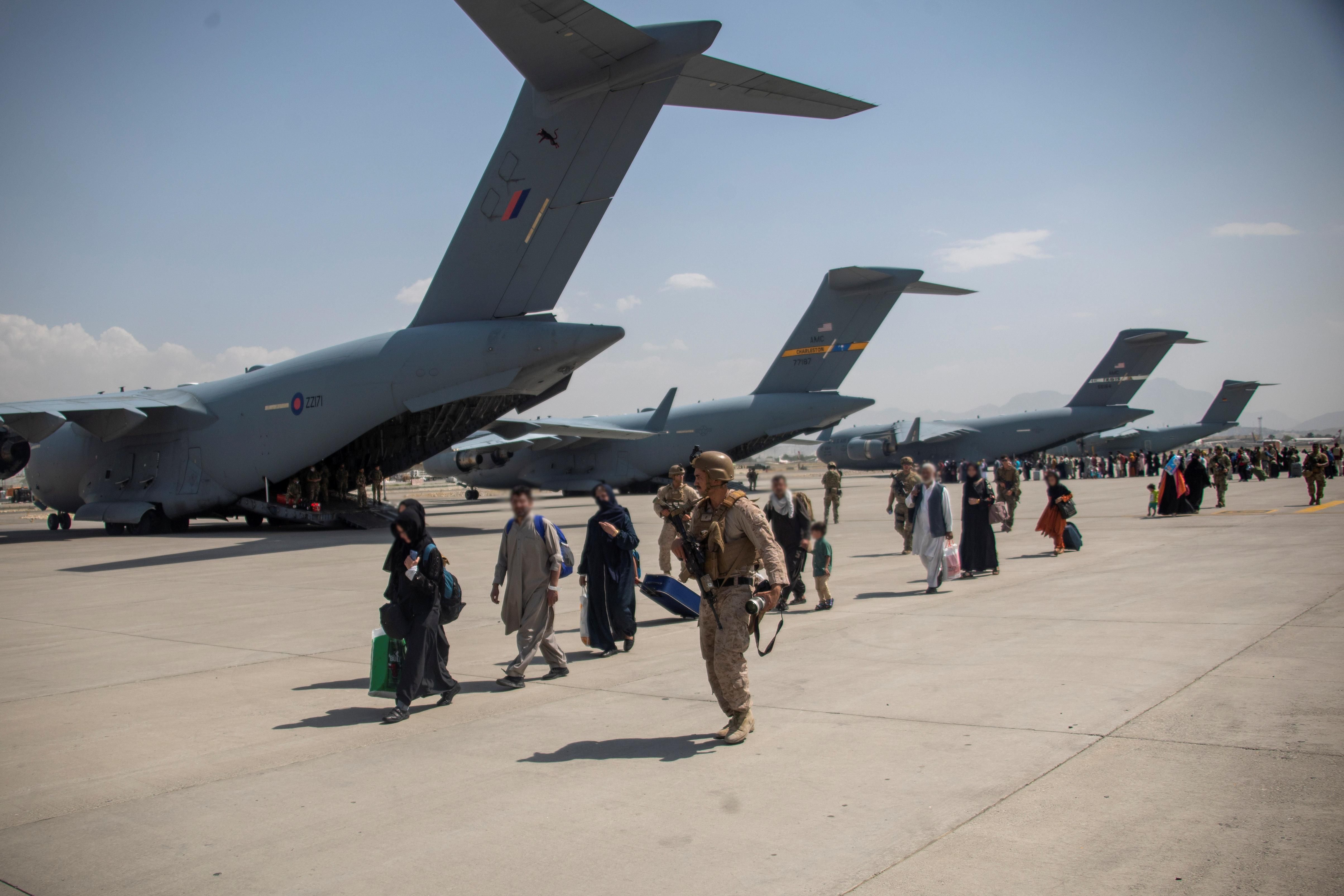Well, deadlines are deadlines. That, for now, seems to be the Biden administration's position on Afghanistan. On Tuesday, the White House announced it would not extend the current August 31 deadline for the full withdrawal of American forces from Afghanistan.
The decision flies in the face of efforts by US lawmakers from both parties and foreign allies, who have pressed the White House to extend the deadline. Seeing the chaos in Kabul airport and the Biden administration's botched handling of the withdrawal so far, they want more time to get Americans and other Western nationals out of the country, as well as the thousands of Afghans who supported the NATO mission or the former government and now face reprisals from the Taliban.
So is this decision the final word? Hardly. For one thing, deadline or not, it would be a political disaster for President Biden to leave any Americans behind. It's pretty simple, says David Gordon, a former State Department Policy Planning chief who currently advises Eurasia Group: "If you're the president of the United States and you have the military capability to get the Americans out, you just can't take that capability away until you've gotten the Americans out."
And leaving Afghanistan before all of the British and French citizens are evacuated would risk a big rift with two close US allies who are already jilted by Biden's unilateral and bungled withdrawal plan. While the British have conducted some of their own flights, both they and the French depend on the US for security at the airport itself.
Washington's increasing pace of evacuations means it's at least possible that most Westerners could be out by next Tuesday — but with an estimated 10,000-15,000 Americans left, plus thousands of Afghans and other foreign nationals waiting to get out — while some interim destinations for these people are already at capacity — we'd bet the US will have to stick around in some way after August 31 after all.
Staying beyond August 31 could lead to an interesting dance with the Taliban. Officially Afghanistan's new rulers have threatened unspecified "consequences" if the Americans stay beyond August 31. But they may in fact be a little more flexible on this issue than they are claiming to be.
"The Taliban are clever, sophisticated, really smart people," says David Sedney, a former Deputy Assistant Secretary of Defense for the region under the Obama administration. "They clearly have the complete upper hand right now, so the bargaining position is very much on their side."
And bargaining they may certainly be: earlier this week CIA director William J. Burns was in Kabul to meet with the Taliban, presumably about precisely this issue.
So what might the Taliban want in exchange for keeping cool about an extended US presence? No one is quite sure, but Ibraheem Bahiss, an Afghanistan specialist at International Crisis Group, says the most important thing, from their perspective, is ensuring that their de facto government is recognized by the international community, and that any talks with Western officials will likely focus on that goal.
Clearly, obstructing the West's ability to get its own people out certainly wouldn't help that cause.
But the Taliban's tolerance at the departure lounge seems to be limited to foreign nationals. When it comes to the Afghans who are trying to leave, the Taliban is clearly cracking down.
"We are past the high point of Afghans leaving the country," says Gordon. The Taliban, he points out, have yet to establish a stable government, and they are worried about brain drain: losing hundreds of thousands of qualified people who are both the country's most capable technocrats, as well as those most likely to cause problems for the Taliban in exile. The Mariel Boatlift this is not.
All of which presents a series of dilemmas for Biden in the coming days. If the deadline is impossible to meet, will his administration arrange a quid pro quo of some kind with the Taliban to extend? And if the Taliban let Americans leave but stop Afghans from departing, should Biden put American lives on the line to help get them out?EDITOR'S NOTE: After we went to press, US Secretary of State Tony Blinken on Wednesday announced that the Taliban would allow Americans and at-risk Afghans to continue to leave Afghanistan after 31 August, and that there were approximately 1,500 Americans left in the country.
